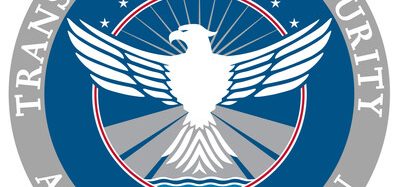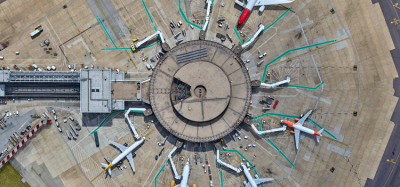Blockchain technology: passport to the future?
- Like
- Digg
- Del
- Tumblr
- VKontakte
- Buffer
- Love This
- Odnoklassniki
- Meneame
- Blogger
- Amazon
- Yahoo Mail
- Gmail
- AOL
- Newsvine
- HackerNews
- Evernote
- MySpace
- Mail.ru
- Viadeo
- Line
- Comments
- Yummly
- SMS
- Viber
- Telegram
- Subscribe
- Skype
- Facebook Messenger
- Kakao
- LiveJournal
- Yammer
- Edgar
- Fintel
- Mix
- Instapaper
- Copy Link
Posted: 22 February 2016 | Katie Sadler (International Airport Review) | 2 comments
SITA is exploring the possibility of developing blockchain technology to provide travellers with single secure mobile or wearable travel identification through airports and across borders…


Article originally posted 27 May 2016.
According to travel technology provider SITA, blockchain development could soon be used for identification purposes through airports and border crossings. The technology will allow passengers to travel with a single token providing secure biometric authentication throughout their journey.
Blockchain technology used to develop mobile and wearable device passports
The provider is currently researching how using virtual or digital passports in the form of a single secure token on mobile and wearable devices could reduce complexity, cost and liability around document checks during the passenger journey.
“Now blockchain technology offers us the potential to provide a new way of using biometrics”
Jim Peters, CTO at SITA, said: “Our vision is for seamless secure travel. To date, technology has provided SITA the opportunity to do that at many airports and at more than 30 of the world’s borders. But the underlying design of today’s computer systems means that there are multiple exchanges of data between various agencies and multiple verification steps, which reduces the ability to have a single global system.
“Now blockchain technology offers us the potential to provide a new way of using biometrics. It could enable biometrics to be used across borders, and at all airports, without the passenger’s details being stored by the various authorities.”
Verification takes place without agencies ever controlling or storing biometric details
Working together with blockchain start-up ShoCard, SITA envisages passengers creating a verifiable ‘token’ on their mobile phone which contains biometric and other personal data. The information can then be used by any authority by scanning the travellers face and device for proof of person. The verification could take place without agencies / authorities ever controlling or storing biometric details.
Armin Ebrahimi, founder and CEO of ShoCard said: “ShoCard sees a digital revolution when it comes to people providing their verifiable identity information to third parties. Today we are showing how our identity platform, built using the blockchain, combined with SITA’s unique air transport and border management solutions could improve traveller experience while ensuring security.”
Peters continued: “Blockchain offers a revolutionary approach to computer applications. It fundamentally changes the way we design systems because we can now create decentralised, global, tamper-proof, distributed databases. It is very early days yet and the issues of scalability and adoption rates need to be examined. But what our SITA Lab team is looking at today is how we in the air travel industry – airlines, airports and government agencies – can take advantage of the new era where the underlying blockchain protocols provide trust so that individuals or authorities don’t have to.”
SITA’s researchers are now investigating a versatile and secure system to make the single travel token work globally across all borders.


















We want to promote your Blockchain in Indonesian airports
We need your Blockchain in Indonesian airports